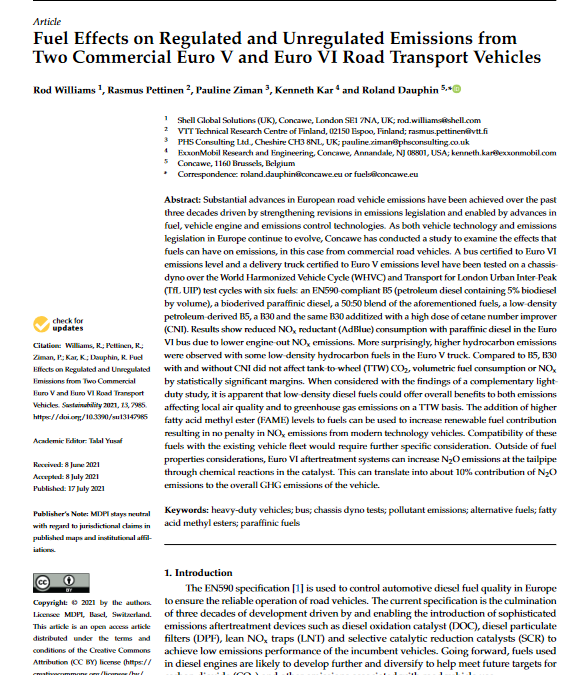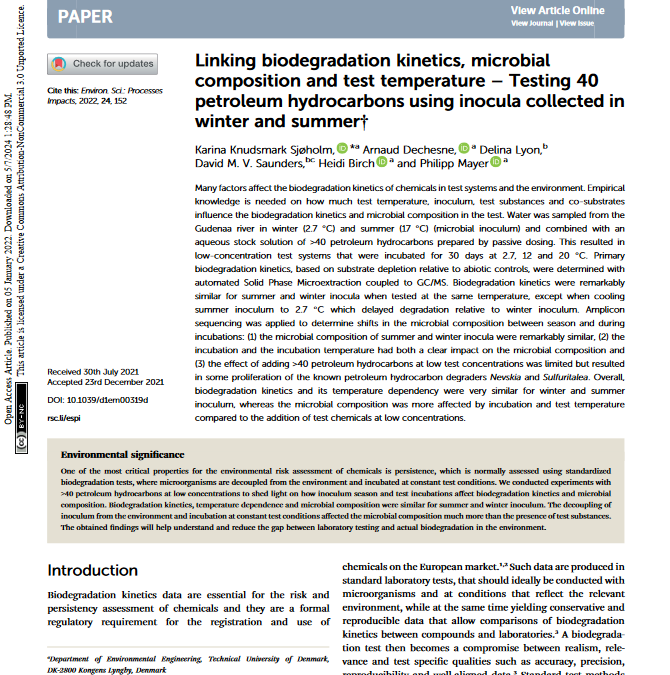

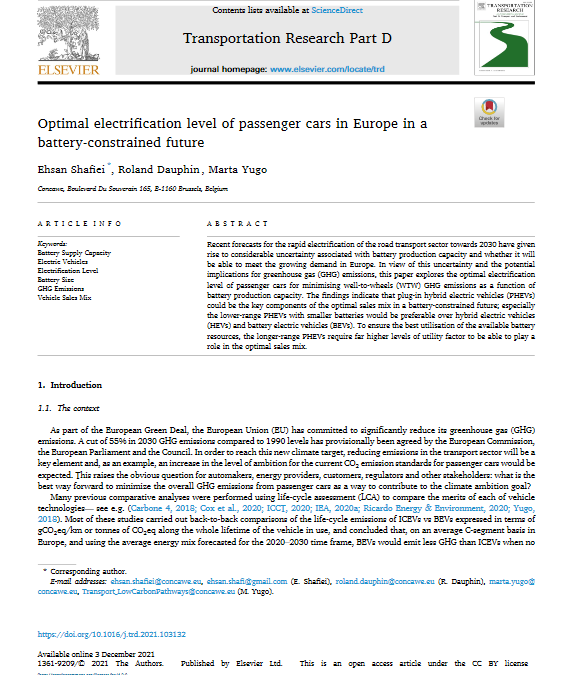
Optimal electrification level of passenger cars in Europe in a battery-constrained future
Recent forecasts for the rapid electrification of the road transport sector towards 2030 have given rise to considerable uncertainty associated with battery production capacity and whether it will be able to meet the growing demand in Europe. In view of this...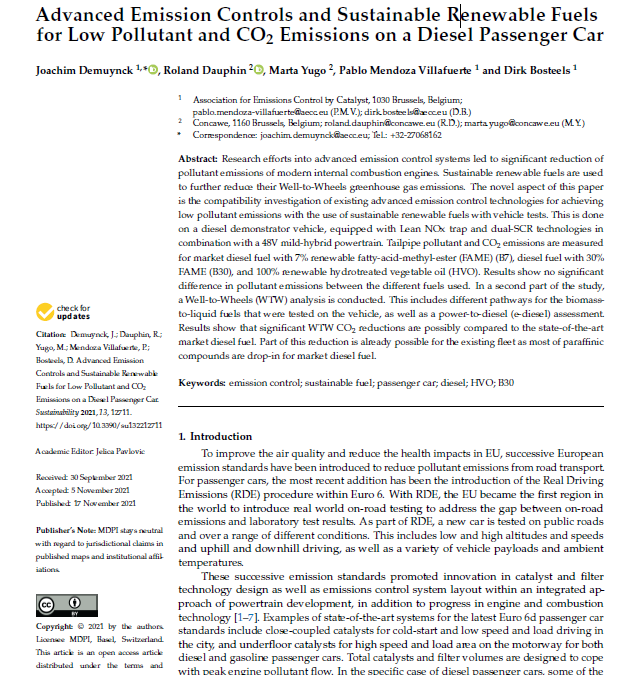
Advanced Emission Controls and Sustainable Renewable Fuels for Low Pollutant and CO2 Emissions on a Diesel Passenger Car
Research efforts into advanced emission control systems led to significant reduction of pollutant emissions of modern internal combustion engines. Sustainable renewable fuels are used to further reduce their Well-to-Wheels greenhouse gas emissions. The novel aspect of...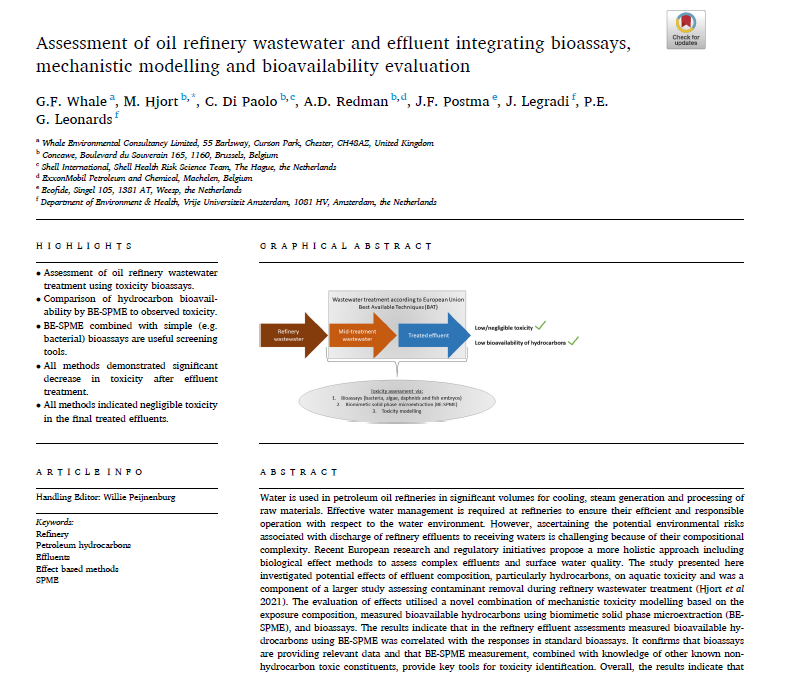
Assessment of oil refinery wastewater and effluent integrating bioassays, mechanistic modelling and bioavailability evaluation
Water is used in petroleum oil refineries in significant volumes for cooling, steam generation and processing of raw materials. Effective water management is required at refineries to ensure their efficient and responsible operation with respect to the water...